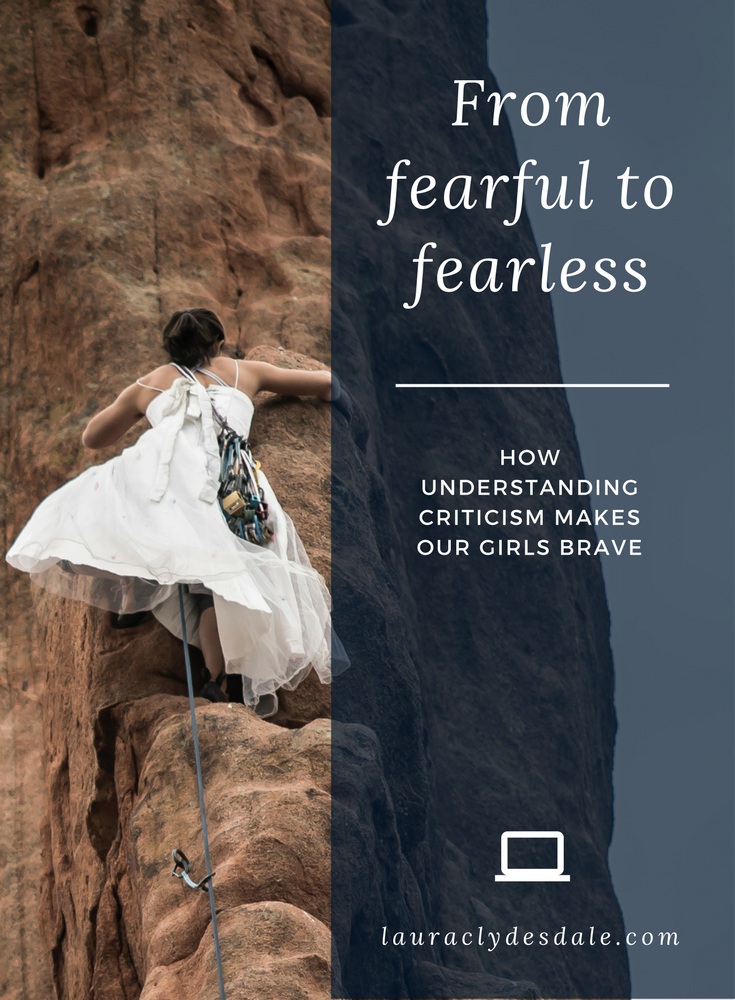Standing in the arrivals area with the other expectant parents at the Oakland Airport, I waved to my daughter. This was the second time I’d waited for a child coming back from an incredible school science trip to Catalina Island’s Marine Institute.
Three years ago, when my son greeted me in baggage claim, it was one big, joyful run-on sentence. “Andreas dissected the squid, ate it raw and then drew a mustache with the ink, I night snorkeled and saw an angel fish, the wetsuits were way too tight and stank, and the food was really good.”
My daughter offered me a much different greeting after clearing security. Instead of oozing with excitement she said, “I can’t believe the mean-girl stuff that went on!” Her friend added, “It was so exhausting!”
“Well, did you guys dissect the squid?” I asked.
“Oh, yeah. That was cool. Julien drew a tattoo on his arm with the squid ink,” she said.
After establishing the program was still sound, I probed for more insight into the drama. Apparently, two kids decided it would be fun to lob mean ridicule toward a girl who volunteered to demonstrate how to put on a wetsuit. She publicly retaliated, and it spiraled out of control.
Instead of my daughter feeling fortunate for having this extraordinary experience, the 3-day altercation overshadowed everything.
Everyone struggles with criticism but girls in particular fear ridicule.
Research suggests girls have a lot of work to do to learn to depersonalize it. The Girl Scout’s Change It Up! Study says girls don’t want to be leaders due to the following criticism fears:
I do not want to speak in front of others 45%
I am afraid I would fail 32%
I do not want to be laughed at 32%
I do not want people to get mad at me 30%
I do not want to seem bossy 29%
Girls Leadership Institute’s Dare to Dream, Dare to Act: What Girls Say About Bravery backs up these findings. 34% of girls often or always fear peer judgment such as being embarrassed, ridiculed, failing, or being ostracized.
Unwarranted criticism. Constructive criticism. Professional criticism. Mean girl behavior. Being bullied. Being judged. Being singled out.
Girls lump them all together because they all feel terrible to them.
So, the simplest way to escape criticism, even though it can help you grow, is to not put yourself out there in the first place.
“If you put yourself out there in any way because you want to be an artist, you want to excel in a sport, you want to run for political office, or you want to move up the corporate ladder, the fact of the matter is you are putting yourself out there, and you will most definitely be charged a 'tax,'” says Elizabeth Gilbert, author of Eat, Pray, Love. “That tax is the relentless criticism by both amateurs who lob their thoughts in their pajamas at 3 am as well as the professional critics who are paid to lob theirs in professional dress from 9-5pm.”
Leslie Jones (Actress & Comedian), Gabby Douglas (Gymnast), Hope Solo (US Soccer Player), Hilary Clinton (Politician), and Marissa Meyer (Yahoo CEO) are just a few recent examples of women who put themselves out there and paid the criticism tax.
I’m nowhere near their league, but as a writer who puts herself out there, I’ve also paid this tax. On-line comments can be thrilling… until they become less thrilling.
Most comments are positive, and many are constructive, but some are so removed from reality they are preposterous. It’s often hard not to feel like those girls in the research and want to crawl into a hole. Although unpleasant, the ability to figure out which criticism matters gets me back to writing and putting myself out there again.
Sharon Martin, psychotherapist and author, agrees and suggests seven strategies for figuring out what type of criticism you just received and how best to respond:
1. Decide whose opinion matters
2. Don’t respond immediately
3. Look for something positive or useful
4. Look for facts or specifics
5. Be kind whenever possible
And remember…
6. It’s probably not about you
7. Sometimes the best response is no response
For my daughter’s classmate, the child hurling insults wasn’t a close friend. In fact, this person had a track record of stirring the pot at school. For my own experience, experts weigh in with valuable insights, many readers make thoughtful and valid points, and unfortunately, the notorious internet trolls occasionally land a few blows. Martin says it’s important to, “… decide what feedback you let in and whose opinion really matters.”
It’s hard not to respond to someone immediately, especially if you are face-to-face. However, you can recapture some control over the conversation by telling the person you are surprised by this feedback and that you need time to think before discussing it. This buys time to get your emotions in check and to evaluate the criticism. If my daughter’s friend had paused, she might have found a response which defended herself and also deescalated the situation.
Sort through the information you received and see if there is anything useful or constructive. The best feedback comes in the way of facts you can use to test if you truly are doing these things. Specifics also allow you to make a corrective action plan. Facts give you something to hold on to. For instance, if someone tells me “You’re a jerk,” there is very little I can do with that information. However, if someone says “When you did X, it humiliated me,” I can realize I did a pretty jerky thing, apologize, and figure out how not to do it again.
On being kind, “I’m not saying you should be a doormat. Kindness isn’t the same as passivity or placating. Kindness means I choose not to meet a personal attack with a counter-attack,” says Martin. Often people are having a bad day or perhaps a situation in their lives is causing them to lash out. If this indeed is happening, the knowledge takes the edge off, helps us not take the criticism so personally, and helps us avoid reacting.
The toughest part of sifting through criticism is determining whether the feedback is even about you at all. If someone tells you-you are a bad mom in response to something you wrote in a 900-word article, it's clearly not about you and everything having to do with their own experiences and beliefs.
In fact, it might be best just to walk away. “Notice when someone’s criticism of you just doesn’t make sense. You may wonder if you’re having the same conversation, reading the same material, or living in the same house. When this happens, it’s probably other people’s baggage or agenda that they’re trying to hoist onto you. They’re looking to engage you in a conflict. You don’t have to participate.” says Martin.
When we recognize all criticism isn’t the same, we feel more confident in risk taking. When we put ourselves out there, we know we will get judged. But when we decide which judgment to allow into our lives, and which to ignore, we gain more control.
It helps us become braver.
For anyone struggling with putting themselves out there for fear of criticism, I leave you with the infinitely wise words of Brene’ Brown from her book, Rising Strong:
“… A lot of cheap seats in the arena are filled with people who never venture onto the floor. They just hurl mean-spirited criticisms and put-downs from a safe distance. The problem is, when we stop caring what people think and stop feeling hurt by cruelty, we lose our ability to connect. But when we’re defined by what people think, we lose the courage to be vulnerable. Therefore, we need to be selective about the feedback we let into our lives. For me, if you’re not in the arena getting your ass kicked, I’m not interested in your feedback.”
-Laura







